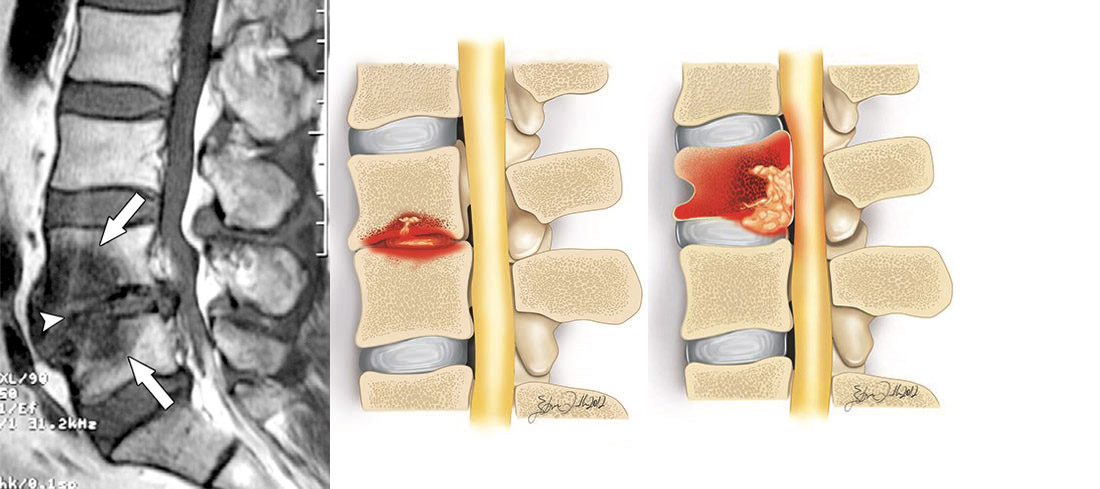
Your Spine Health Partner for Spinal Infections Surgery Treatment
At D Spine Clinic, Mumbai’s premier spine care center, we provide advanced spinal infections surgery to effectively treat and manage infections affecting the spine. Led by Dr. Dhanish Mehendiratta, a leading spine surgeon in Mumbai, our team combines cutting-edge techniques, including minimally invasive spine surgery, with compassionate care to ensure optimal recovery and long-term spine health.
What Are Spinal Infections?
Spinal infections are serious conditions caused by bacteria, fungi, or other pathogens affecting the vertebrae, discs, or surrounding tissues. These infections, such as spinal osteomyelitis, discitis, or epidural abscesses, can lead to severe pain, neurological complications, and structural damage if untreated. At D Spine Clinic, we specialize in diagnosing and treating spinal infections with precision and expertise.
Typical Types of Infections in the Spine
- Vertebral Osteomyelitis: Infection of the spinal bones.
- Discitis: Inflammation or infection of the intervertebral discs.
- Epidural Abscess: Pus buildup around the spinal cord or nerves.
- Tuberculous Spondylitis (Pott’s Disease): Tuberculosis-related spinal infection.
- Post-Surgical Infections: Infections following spinal procedures.
Indications for Surgical Treatment of Spinal Infections
While some spinal infections can be managed with antibiotics and rest, surgery may be required in cases where:
- There is spinal instability or deformity
- Abscess formation causes nerve compression
- The infection does not respond to medical treatment
- Neurological deficits such as weakness or numbness are present
Why Choose D Spine Clinic for Spinal Infections Surgery?
D Spine Clinic is a trusted destination for spine care in Mumbai, offering specialized treatment for spinal infections under the expertise of Dr. Dhanish Mehendiratta, a fellowship-trained orthopedic spine specialist. Here’s why patients choose us:
- Expert Leadership: Mehendiratta’s global training from institutions like AO Spine Foundation, Queens Medical Hospital, UK, and Instituto Ortopedico Rizzoli, Italy ensures world-class care.
- Minimally Invasive Techniques: Use of microendoscopic and robotic-assisted surgery for precise treatment and faster recovery.
- Comprehensive Care: Integration with antibiotic therapy, physiotherapy, and rehabilitation for holistic recovery.
- Advanced Diagnostics: State-of-the-art imaging and testing to accurately diagnose and monitor infections.
- Proven Expertise: Backed by Dr. Mehendiratta’s 21+ published research articles and collaboration with India’s top spine surgeons.
Get Expert Advice – Reserve Your Visit
If you’re experiencing symptoms of a spinal infection such as back pain, fever, or neurological changes, early intervention is critical. Contact D Spine Clinic today to consult with Mumbai’s trusted spine care team and explore safe, effective surgical solutions for spinal infections.
D Spine Clinic – Comprehensive Care for Spinal Infections in Mumbai.
The symptoms of a spinal infection tend to develop very slowly. Spinal infections take between 3 days and 3 months to notice.
Common warning signs of a spinal infection include
- Pain that is worse with movement and doesn’t respond to rest and medication
- Neck stiffness
- Fever
- Chills
- Swelling or redness at the infection site
- Night pain
- Unexplained weight loss
- Bowel and bladder incontinence
- Progressive development of severe back pain with limited mobility
- Weakness, numbness or tingling in the arms and legs
If you suspect that you have a spinal infection, then seek medical attention ASAP. Although many of these infections can be treated with antibiotics: A spine infection is considered to be an emergency.
Spinal infections can be caused by either a bacterial or a fungal infection in another part of the body that has been carried into the spine through the bloodstream. The most common source of spinal infections is a bacterium called Staphylococcus Aureus, followed by Escherichia coli.
- Spinal Infections can be diagnosed through a combination of imaging studies and lab work.
- If you are still in the early stages of an infection, we will likely begin by taking an X-ray. Although x-rays cannot show soft tissues (like spinal discs), they can reveal bone deterioration and loss of disc height.
- To obtain information about both soft tissues and bone health, your doctor may upgrade your exam to an MRI.
- Lab work to diagnose a spinal infection may include examining white blood cell count or markers for inflammation. Specifically, these markers are known as the Erythrocyte Sedimentation Rate (ESR) and C-reactive Protein (CRP). These indicators will be unusually high in 85% of all spinal infection cases. In addition, your doctor may also use a Blood Culture to try to isolate the specific pathogen causing your pain.
- Spinal Infections often require long-term Intravenous Antibiotic or Antifungal Therapy and can equate to extended hospitalization time for the patient.
- Immobilization and Bracing may be recommended when there is significant pain or the potential for spine instability.
- Patients generally undergo Antimicrobial therapy for a minimum of six to eight weeks.
Nonsurgical treatment should be considered first when patients have minimal or no neurological deficits and the morbidity and mortality rate of surgical intervention is high.
However, surgery may be indicated when any of the following situations are present:
- Significant bone destruction causing Spinal Instability
- Neurological Deficits
- Sepsis with clinical toxicity caused by an Abscess unresponsive to antibiotics
- Failure Of Needle Biopsy to obtain needed cultures
- Failure Of Intravenous Antibiotics alone to eradicate the infection
The primary goals of surgery are to:
- Debride (clean and remove) the infected tissue
- Enable the infected tissue to receive adequate blood flow to help promote healing
- Restore spinal stability with the use of instrumentation to fuse the unstable spine
- Restore function or limit the degree of neurological impairment
Laminectomy – If your spinal infection is abcessed then we may need to perform a laminectomy (removing the back portion of your vertebra) to relieve pressure on your spinal cord.
Interbody Fusion surgery – We will remove the source of infection from the spine and perform a fusion. Entering the spine from the front or back, we will insert a bone graft that will permanently fuse the two vertebrae together for support.
Vertebral Augmentation Procedure – If your vertebra is fractured due to infection then we perform a kyphoplasty or vertebroplasty. We remove the source of infection and inject a medical grade cement into the collapsed vertebra to stabilise it.







